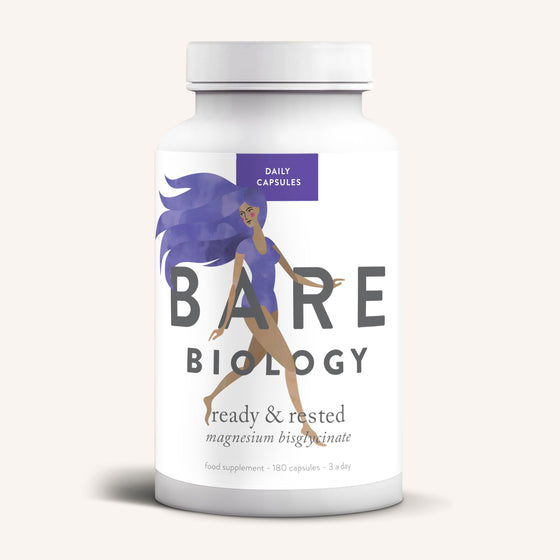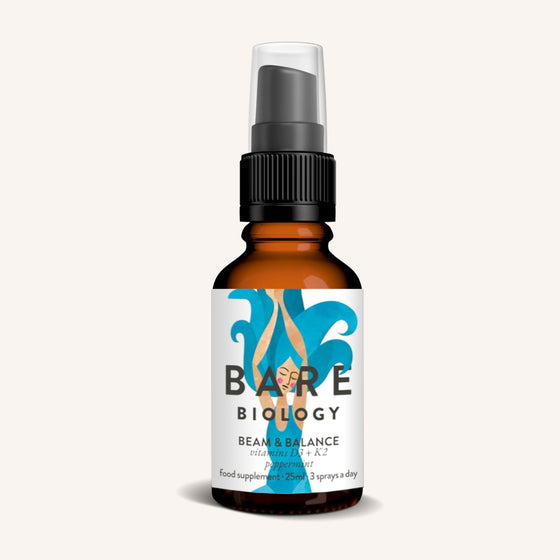Getting pregnant in our 40s can be quick for some and trickier for others as fertility is very individual. Some women have more eggs and others have fewer but better quality. Knowing how to protect your eggs and the amount we have as we hit our 40s can make all the difference.
What is a mediterranean style diet?
When I think of Mediterranean food, it reminds me of holidays in the sun, cornucopias of mussels, prawns, lobster and langoustine; grilled fish with garlic and a generous squeeze of lemon; roasted meat, chicken and vegetables drizzled with olive oil; and platters of colourful fruit and local honey.
But how do we recreate this abundance of fresh, local produce at home?
Eat a rainbow of fruit and vegetables
The colourful pigments in the skins of fruit and vegetables are rich in flavonoids - natural chemicals which protect the plants from damage – that protect us.
Here are just a few of a long list of natural chemicals which reduce inflammation, support detoxification and reduce free-radical oxidative damage to eggs and the womb lining.
- Resveratrol and anthocyanins from berries and dark-skinned grapes
- Quercetin from apples
- Naringenin, limonene and rutin from citrus fruit
- Tannins and catechins in green and black tea
- Curcumin in turmeric
- Lycopene in tomatoes, watermelon and pink grapefruit
Smoothies, salads, fresh juices, soups, curries, stir fries and stews are good ways to get in as many as possible. Aim for 7-10 portions of fruit and vegetables daily.
Why are dark green leafy vegetables a must?
Fruits, vegetables (especially dark, green and leafy veg) nuts, beans and wholegrains are rich sources of folate. Folate plays a major part in rolling out the DNA in a new egg and rapidly dividing foetus. Diets that are low in folate are linked to increased rates of miscarriage and genetic defects which can get worse with age.
Folate also helps methylation, a key biochemical process to get right during preconception and pregnancy. Poor methylation can contribute to neural tube defects, early pregnancy loss, poor egg quality and maturation.
Key nutrients and methyl donors like folate, B2, B6, B12, glycine, serine and choline are found in a typical Mediterranean diet.
Folate or folic acid?
Folate is the natural form of folic acid found in food. Women are advised to take a 400mcg folic acid supplement during preconception and 600 mcg when pregnant. But women diagnosed with an MTHFR SNP (an inherited genetic variation which reduces the ability to convert folic acid to its more body-ready form - methyl folate or 5-MTHFR) need as much as 800 mcg or more. Ideally of 5-MTHFR.
If you haven’t yet been tested and are unsure whether you have the MTHFR SNP, make sure you eat plenty of folate-rich foods and choose a pregnancy multivitamin, containing 5-MTHFR as a good insurance policy.
Mediterranean diets are high in protein
High protein diets reduce inflammation, balance hormones and regulate ovulation in women with PCOS, endometriosis and metabolic syndrome. Diets low in protein reduce fertility but it’s important to not eat too much of it and to keep it lean. An average of 1g per kg of weight spread over your meals and snacks throughout the day is considered to be a good rough guide to how much you need.
Amino acids
Digestion breaks protein down into amino acids – there are 20 in total. 9 come from the food we eat and the body is able to make the rest.
Arginine
Pumpkin seeds have the highest levels of this. Almonds, walnuts, pine nuts, seaweed, tofu, chickpeas, meat and chicken also have good levels of arginine.
Carnitine
In another study, carnitine (found in red meat, fish, chicken and whey in milk) improved the quality of the peritoneal fluid in women with endometriosis and reduced egg or oocyte damage.
COQ10
Keeping CoQ10 levels topped up via diet and supplementation is vitally important for egg health over 40 as our ovarian tissue and levels of CoQ10 naturally decline.
Oocytes depend on CoQ10 for energy and repair. It powers the mitochondria or energy producing ‘batteries’ of oocytes and protects them from age-related oxidative damage. There are a whopping 200,000 mitochondria in every egg, more than anywhere else in the body. By contrast, sperm only have 16.
Beef, liver, pork, chicken, liver, fish and other proteins like lentils, sesame seeds and pistachios are all rich sources of CoQ10.
Melatonin
Melatonin, a hormone produced in the pineal gland from the amino acid tryptophan, is best known for regulating the sleep-wake cycle. It is also a powerful free-radical scavenging antioxidant able to mop up accumulated DNA damage. Researchers found that it protects older eggs from chromosomal defects and apoptosis, or cell death.
Nuts, eggs and fish are good natural food sources.
Keep carbs low and slow
Keeping carbohydrates low GI, or low glycaemic, also improves fertility outcomes for women of all ages. The glycaemic Index is a measure of how quickly foods release glucose into the bloodstream. Low GI carbs release glucose into the bloodstream more slowly than processed carbs. Excess amounts of refined, sugary foods lead to weight gain, inflammation, insulin resistance, PCOS, fibroids, endometriosis and increased miscarriage risk
Cut out high GI carbs like white potatoes, rice and bread and replace with low GI sweet potatoes, butternut squash, brown rice, buckwheat, quinoa, brown pasta or wholegrain bread. Excess amounts of glucose from refined, sugary foods leads to excess weight gain, inflammation and insulin resistance as well as PCOS, fibroids, endometriosis and increases miscarriage risk.
Eat low GI carbs in moderation
Even slow carbs should occupy no more than a ‘fist sized’ portion on your plate. A palm-sized portion of lean protein is a good rough guide to how much you need. The rest of your plate (that’s over half) should be piled high with colourful vegetables and salad. Don’t base your meals around carbs but around protein. Think protein and veg and crowd the carbs out.
Get your fats right
A Mediterranean style diet gives us access to mono and polyunsaturated fats (MUFA and PUFA) from plants, oily fish, flax, nuts and seeds - plus some saturated fats from goat’s and sheep’s cheese, butter and grass-fed milk.
Low fat diets are associated with ovulation failure, no periods and poor egg quality. Fats also help us make the sex hormones oestrogen and progesterone.
To make sure you’re getting enough ‘good’ fats add 2-3 tablespoons of ground flaxseeds to your breakfast muesli; snack on a handful of walnuts, brazils or almonds; sprinkle generous amounts of toasted sunflower and pumpkin seeds onto salads and soups; eat avocado on sourdough or add to salads; make organic virgin olive oil salad dressing or drizzle over roasted or steamed veg; eat nut butters; have small amounts of full-fat grass fed cheese, milk and butter; eat oily fish 2-3 times a week or invest in a high-quality fish oil supplement.
Are you getting enough oily fish?
S.M.A.S.H also known as salmon, mackerel, anchovies, sardines and herring are the highest sources of omega-3 fatty acids.
They’re also found in smaller amounts in flax, chia and walnuts.
Good amounts of omega-3 fatty acids reduce inflammatory cytokines in women with endometriosis and can improve egg quality.
Researchers also found that mice fed an omega-3 rich diet had more follicles, better quality embryos and less infertility. At the time when most mice were infertile those on the omega-3 rich diet carried on producing healthy eggs and getting pregnant. Not only that, but even those fed an omega-3 rich diet just at the point when their fertility was about to nosedive were also able to produce better quality eggs.
The researchers concluded that if applied to humans, following an omega-3 rich diet could effectively delay ovarian ageing and improve oocyte quality.
Hanna is both a fully qualified acupuncturist and an experienced naturopathic nutritionist. She combines her acupuncture sessions with dietary therapy, supplement advice, herbal support and can order functional tests to help diagnose and guide her treatments. Hanna supports men and women with natural conception in preparation for pregnancy and IVF. Find out more here .
References





